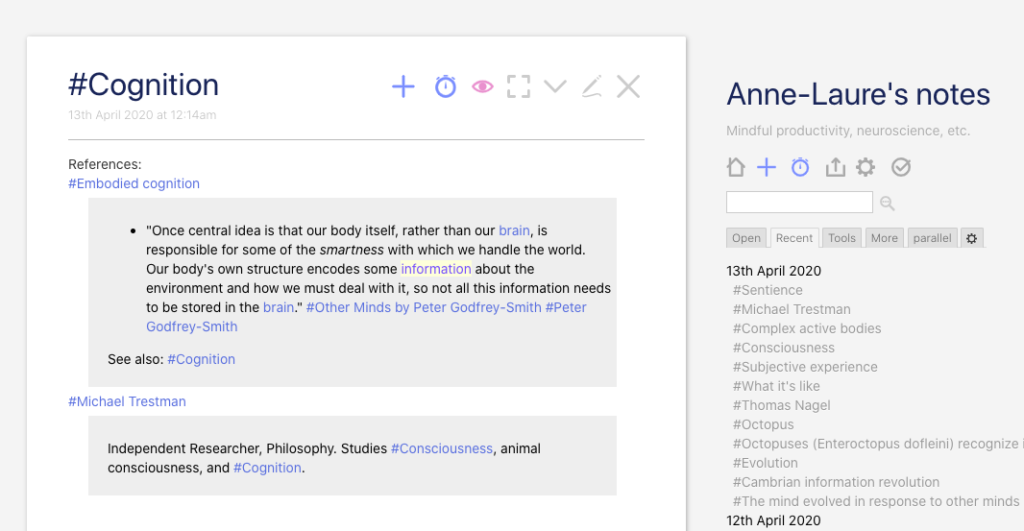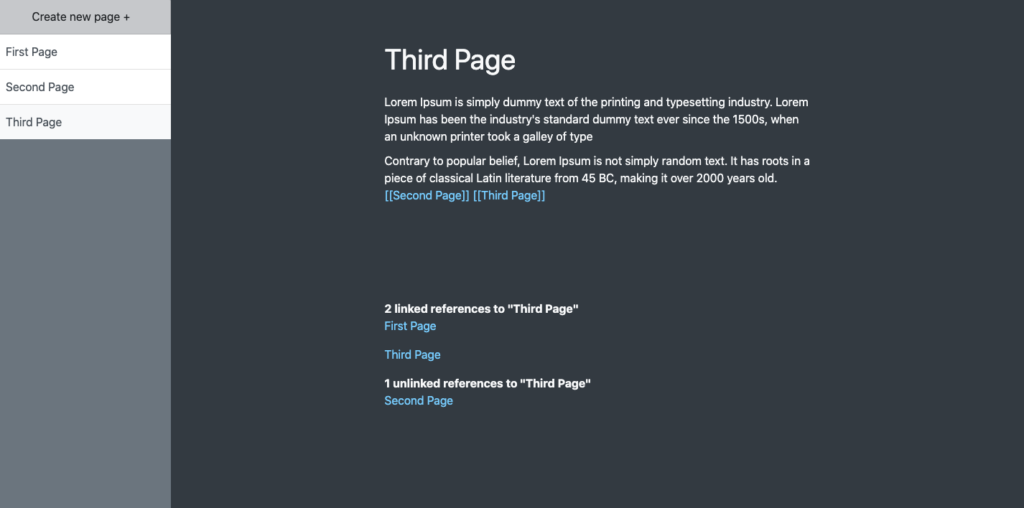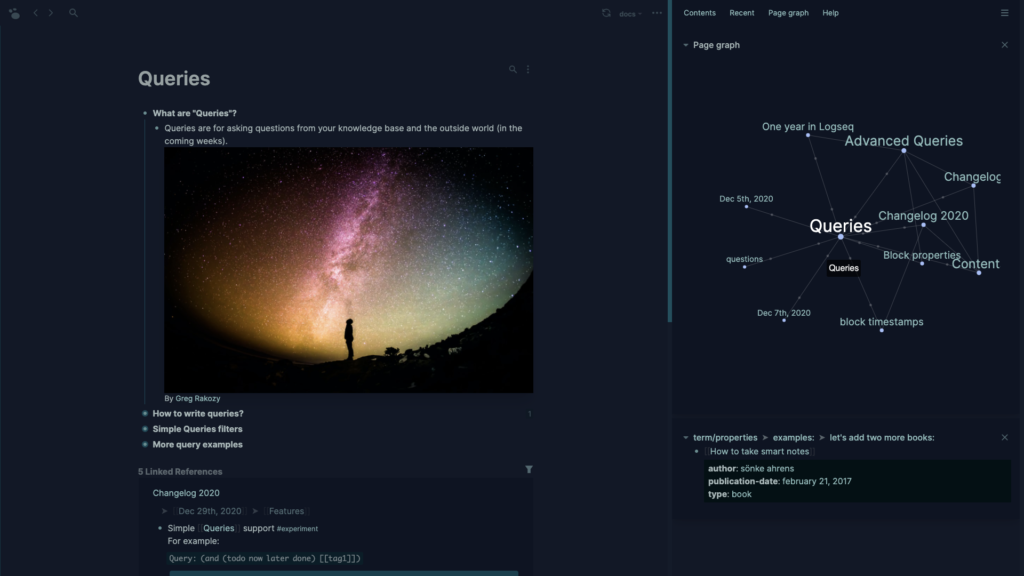Last update on September 24th, 2021.
As you may know by now, I’m a massive fan of Roam Research. It’s a fantastic tool for thought and has the potential to become a powerful enabler of collective intelligence. But for various reasons, you may not want to rely on a SaaS to save your notes. For instance, a friend of mine mentioned their notes were mostly work-related and highly confidential—they just can’t put that data on a third-party’s server. If you are looking for a free, open source, and self-hosted alternative to Roam Research, here are a few options.

- TiddlyBlink. Based on TiddlyWiki, this is a solid alternative. Linking to an inexisting page will create a new one, backlinks are shown as references below each note, you can open notes side by side, easily search through pages, and more. You can keep on using [[page]] to link to pages or create new pages, so you won’t be lost. Some people even use it as a static site generator. It’s completely open source, private, offline, and customisable. Because it’s just one HTML + JS file, you also have many options to host it in the cloud or sync it with Dropbox. It’s better to have a basic understanding of how the command line works to set it up, but then you’re good to go. Here is a short guide to get started.
- TiddlyRoam. Want the knowledge graph? TiddlyRoam combines TiddlyWiki, TiddlyBlink, and TiddlyMap so you have most of the pure text-based functionalities of Roam as well as a live map of all the nodes in your knowledge graph. You can also install TiddlyMap separately.
- Org-roam. People are raving about this one. After watching this amazing video by Matt Williams I was both excited about the software and defeated by the idea of going through all these hoops just to get to try it. It looks great but unstable, so I haven’t installed it. If you’re okay with being a bit more of an early adopter and have your install fail because of some incompatibilities, Org-roam is almost an exact replica of Roam.
- DocuWiki. This is a modular wiki which supports backlinks by default. Great community and fairly simple to install (if you have ever installed WordPress it’s a similar process). Install one of the inclusion plugins to easily embed a page inside another. There is also a modified version called DocuRoam, which supports transclusion out of the box, as well as daily summaries, revision history, and markdown. Watch the demo video or see some screenshots.
- Foam. Built on Visual Studio Code and GitHub, Foam is early but already powerful. Write your content in markdown, use [[page]] for internal links, and explore your content with an interactive graph. The Backlinks Explorer lets you find all notes that link to a specific note. Foam also makes it easy to back up your notes on GitHub. With more than 80 contributors, this is definitely a project worth following.
- Athens. Quite ambitious, Athens aims to offer a full open-source version of Roam, as well as an open protocol for bi-directional links that affords interoperability between Roam and its open source alternatives. It’s very early but there’s a motivated team of Roam enthusiasts working on it.
- Logseq. A privacy-first, open-source knowledge base that works on top of local plain-text markdown and Org-mode files. Logseq has a passionate community of contributors and was explicitly built as an alternative to Roam, so it includes all the features your would expect, such as daily notes, block references, bi-directional links, filters, quick commands, as well as a graph view and a sidebar.
Other free, open-source and self-hosted alternatives include Zim, Freeplane, Trillium, and Wikidpad, but they all lack many of the core features of Roam, and tend to be either too close to mind maps or too hierarchical. I haven’t tried any of them.
If you don’t mind getting your hands dirty, there are a few projects on Github. For instance, Connor Finley implemented some of the key functionalities of Roam and published the code publicly.

It’s missing data binding, individual blocks, and the knowledge graph, but if you want to contribute you could submit a pull request.
Please keep in mind that by using a self-hosted note-taking tool, you won’t be able to collaborate as easily with other people—you can read about the future of collective thinking Conor White Sullivan envisions in our interview. You also have a higher risk of breaking something. The ease of use and low maintenance cost is part of the appeal of a SaaS such as Roam. But an open source tool—especially the ones that allow for metaprogramming such as Foam and TiddlyWiki—will let you tinker and create the tool you need while ensuring you own and can protect your data.
P.S. I have received so many comments asking if I know about Obsidian, I feel obliged to add this footnote. Obsidian is also a good alternative to Roam. I do recommend giving it a try and reading our interview with the co-founder. The reason it isn’t included above is because it’s not open source, and there are many non-OSS alternatives which I haven’t listed either. However, Obsidian files sit in a local folder, so it does address many of the privacy concerns some people may have with Roam.

